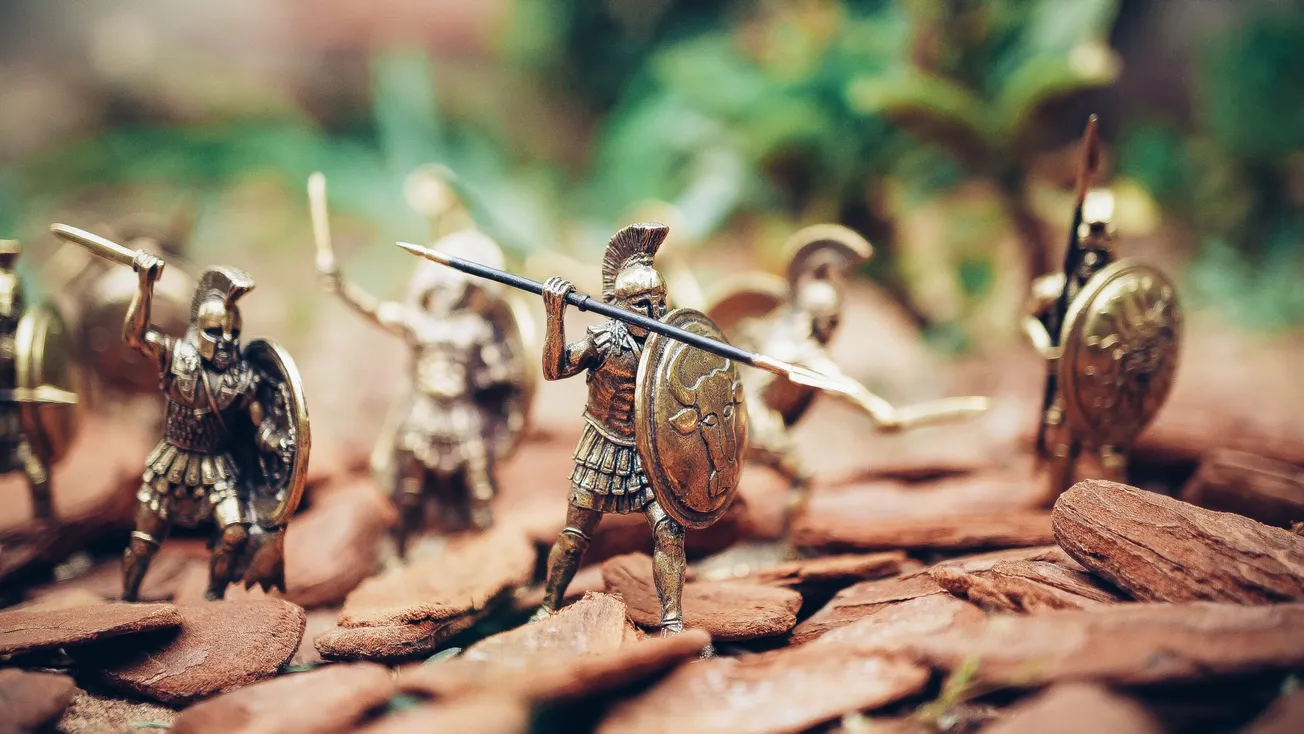Table of Contents
Let’s face it: very few people who actually experience it like war. Even Patton, who thought that “Compared to war, all other forms of human endeavour shrink to insignificance,” almost shamefacedly concluded that, “God help me, I do love it so”. But to the average soldier or civilian caught up in it, war is little more than unalloyed misery. The widespread jubilation at the outbreak of WWI was the cluelessness of a generation of Europeans who’d never experienced war. Twenty years later, and jaded by experience, even the streets of Berlin were empty of cheering crowds at the onset of WWII.
So, how do leaders cajole their populations into war? By drumming up a causus belli, however far-fetched.
But if you thought George W’s “weapons of mass destruction” was the biggest lie ever used to drag nations to war, prepare to be stunned by history.
The War of Jenkins’ Ear (1739-1748)
Yes, this war between Britain and Spain, which lasted nine years, actually started because of a severed ear. In 1731, British Captain Robert Jenkins‘ ear was cut off by Spanish soldiers who he’d refused to let board his ship in the West Indies.
Fast forward to 1739, and the Brits really wanted to gain stronger trading positions in the Caribbean (at the expense of the Spanish). The only thing missing was a catalyst for war.
After racking their brains, they remembered the time in 1731 when that Spanish commander attacked Robert Jenkins, and a war was born.
International sport might be described as a kind of peaceful war-by-proxy, an outlet for the kind of international tensions that might otherwise lead to war. But, very occasionally, sport itself can lead to war.
The Football War (1969)
Now of course this short war between Honduras and El Salvador wasn’t actually about a soccer match. Relations were already deeply strained between the two countries. However, it was a catalyst.
In 1969 the countries’ soccer teams met head-to-head for a single qualifying spot in the 1970 World Cup. Both countries won each of their games, so an all-deciding third match was played, in which El Salvador won.
This, in addition to the existing political climate, led to mass looting of Salvadorian stores and companies based in Honduras, and diplomatic ties between the two countries were cut. Then on July 14, 1969, El Salvador invaded Honduras to “protect their citizens.”
All in all, the war caused the deaths of more than 2,000 people. At the World Cup, El Salvador lost all three of its games without scoring a single goal.
Shakespeare wrote, “Cry ‘Havoc!’ and let slip the dogs of war”, but in 1925, letting slip a dog really did lead to war.
The War of the Stray Dog (1925)
In 1925 Greece and Bulgaria didn’t like each other. At all. They’d fought on opposite sides of WWI and there was no love lost between them.
It all started when a dog got away from his owner, a Greek soldier, and ran across the border. The soldier, chasing him into Bulgarian territory, was of course shot dead by the Bulgarians.
The Greeks decided to invade and occupy the town of Petrich, and what followed was a conflict that at its height would draw 30,000 men to the battlefield.
Somewhat mercifully, though, less than 200 soldiers were killed.
The Greek dog isn’t the only animal that ever started a war, but the Pig War of 1859 fortunately caused even fewer casualties than the War of the Stray Dog. In 1859, relations between the US and Britain were still strained by the War of 1812, not to mention the War of Independence.
On June 15 of that year, a wayward pig led the two countries to the brink of war. The pig ran from American settlers in Washington state and crossed into British-owned Canada. The Brits on the other side were herding sheep and shot the pig, which didn’t go down too well with the Americans.
Both the British and the Americans placed troops along the border. The stand-off lasted four months, but eventually no shots were fired. This meant that the total number of casualties was limited to a single pig.
If starting a war over an animal seems crazy enough, starting a war over their poo is surely even crazier — yet, it happened.
Chincha Islands War (1864-1866)
Also called the Spanish-South American War (Chili, Ecuador and Bolivia were all dragged into the conflict as well), on the surface this war seems purely territorial in nature. But what was so special about the Chincha Islands? Bird droppings, that’s what.
Thanks to the Guanay cormorants, a native bird species, the islands are very rich in guano, a fertilizer composed (among other things) of their poo. This made the islands a potentially valuable—if somewhat smelly—asset to all involved. One of the outcomes was Spanish recognition of Peruvian independence.
MSN
Fighting over bird shit is one thing — but when your fellow soldiers refuse to share some free booze… dis means war, even if it’s against your own side.
The Battle of Karansebes (1788) was a friendly-fire incident during Austro-Turkish War of 1787–1791 that ultimately killed some 1,000, all of whom were ostensibly on the same side, and lead to the enemy capturing a key town.
The 100,000-strong Austrian army had set up camp in the town of Karansebes, and sent scouts to find the approaching Ottoman army. Instead, they encountered a group of Gypsies, who, not to miss an opportunity, sold them some barrels of schnapps. Shortly after, another Austrian contingency arrived, and naturally demanded in on the drunken fun. The first group refused to share, though, and a heated argument broke out.
Eventually, a shot was fired, and it was on for young and old. Officers shouting orders in German at the multilingual army only caused further confusion. Artillery got involved. Eventually, the Austrians withdrew and two days later, the Turks marched in and took the suddenly-deserted town full of dead and wounded Austrian soldiers.









